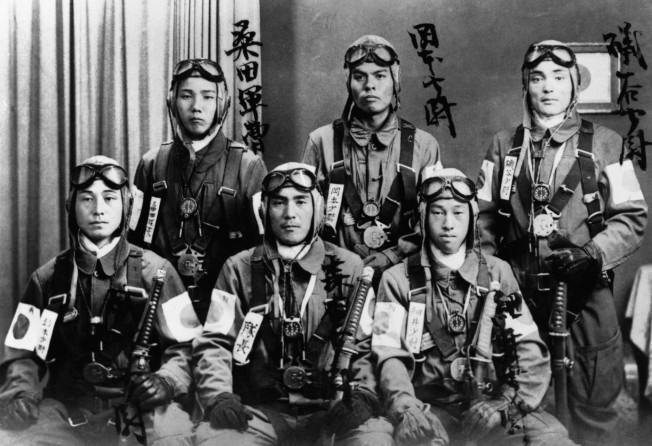Kamikaze letters at centre of world heritage status bid
A city in Japan says the documents show the horrors of war, but the proposal to the UN has already been criticised in China, South Korea

A Japanese city wants its wartime archive of hundreds of letters and documents left by kamikaze pilots to be included in a United Nations list of important documents from world history, a move likely to further strain already tense relations between China and Japan.
Minamikyushu, a city where the pilots were trained and based before they carried out suicide missions on allied warships in the second world war, has submitted the proposal to the Unesco Memory of the World programme, Japanese broadcaster NHK reported. City officials hope the archive will join other documents worthy of preservation and international recognition such as the diaries of Holocaust victim Anne Frank.
Few relatives of the pilots are still alive and the airmen's writings would remind people of the horrors of war as the 70th anniversary of the end of the conflict approaches, NHK quoted the city's mayor, Kanpei Shimoide, as saying.
The plan has already sparked anger among some in South Korea and China.
South Korean Foreign Minister Yun Byung-se said Seoul opposed the application and the suicide notes went against the basic ethics of what constituted world heritage, South Korea's Arirang TV reported.
The China News Service wrote on its official blog that if such an application was possible, Japan would soon look for a listing for the controversial Yasukuni shrine to the nation's war dead, which also honours convicted war criminals.
"Could you be more shameless?" the posting said.
A Chinese blogger also wrote: "The letters can be added to the Bad Memories of the World Registry, if there is one."
Wang Xinsheng , a professor at Peking University specialising in Japanese politics and history, said many of the letters were from college students forced into the suicide missions and were critical of the war.
But he said the museum holding the documents failed to put them in a proper historical context. "The museum simply displays the documents. It shows the shared notion that Japan was pushed into the path of war by the time and it has never been an aggressor."
Despite that the pilots did not think about their role in terms of the reigning militaristic or imperial ideology of the time, some both inside and outside Japan will inevitably view the proposal in the current context of rising nationalism, said Colin Smith, a Japanese studies expert at the University of Hong Kong.
Recent examples include the suggestion from government of Japanese Prime Minister Shinzo Abe that school textbooks should adopt a more patriotic tone and an official at state broadcaster NHK denying there was a massacre by Japanese troops in Nanjing, he said.
"Given the timing of the proposal, it is highly likely that it would spark the same kind of reaction in China and South Korea as Abe's moves have already provoked."
Recent examples included the suggestion by the government of Japanese Prime Minister Shinzo Abe that school textbooks should adopt a more patriotic tone and an official at state broadcaster NHK denying there was a massacre by Japanese troops in Nanjing , he said. "One has to wonder about the timing of such a proposal," Smith said. "It is highly likely that it would spark the same kind of reaction in China and South Korea as Abe's moves have already provoked."
But Jeff Kingston, director of Asian studies at Temple University in Japan, said preserving the letters did not necessarily carry a nationalist agenda.
"It is a way to preserve the voices of those who felt they had no choice and thus is a reminder of the terrible toll of authoritarian government."
Ties between Japan and China have been strained since Abe visited the Yasukuni shrine in December. Tokyo has expressed concern over Beijing's decision to set up an Air Defence Identification Zone over disputed areas of the East China Sea, saying China poses a threat to regional peace and stability.
Meanwhile, in Beijing, foreign ministry spokesman Hong Lei criticised NHK governor Naoki Hyakuta's comment denying the existence of the massacre in Nanking.
"Some people in Japan attempted to cover up and distort history, which posed a challenge to 'human conscience'," Hong said, calling on Japan to make serious reflections on history.
Additional reporting by Teddy Ng